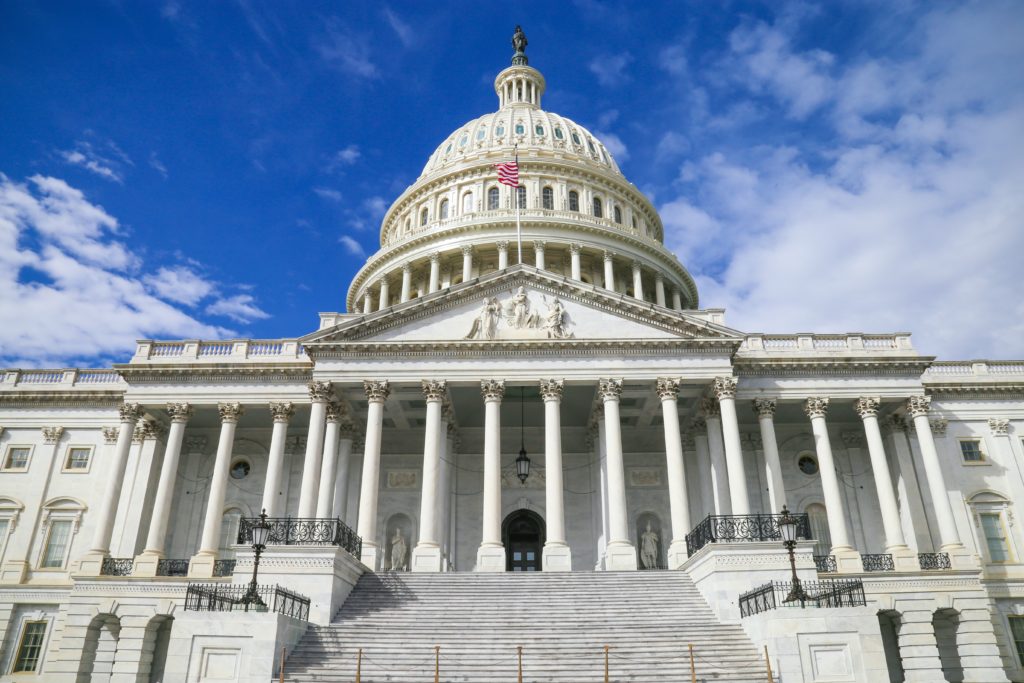On July 25, 2023, the Senate voted 91-7 to include an amendment—introduced by Senators Jon Tester (D-MT) and Mike Rounds (R-SD) as the Promoting Agriculture Safeguards and Security Act (“PASS Act”) of 2023—to the National Defense Authorization Act (“NDAA”) for the 2024 fiscal year (S. 2226). NDAA is a bicameral appropriations bill that specifies the annual budget for the U.S. military and national security programs. In general, the PASS Act would prevent certain investments in U.S. agriculture by China, Iran, North Korea, and Russia. Further, the PASS Act would amend certain portions of the Defense Protection Act (“DPA”) of 1950 to add agriculture as an industry the Committee on Foreign Investment in the United States (“CFIUS”) must consider when determining whether a transaction presents a threat to U.S. national security.
Background
Currently, no federal law exists that restricts foreign persons from acquiring or holding U.S. agricultural land. While there are approximately twenty-four states that specifically forbid or limit foreign ownership of farmland within their state, the federal government only monitors certain foreign acquisitions and landholdings in agricultural land through the Agricultural Foreign Investment Disclosure Act (“AFIDA”) of 1978. Essentially, AFIDA requires certain foreign persons to disclose their interests in U.S. farmland to USDA.
Over the past few years, federal policymakers have become increasingly concerned about foreign investments in U.S. agricultural land. Because there is no federal law that imposes a restriction on the amount of farmland that can be foreign owned, Congress has proposed several measures that seek to increase oversight and restrict foreign investments and acquisitions of land located within the U.S.
Some of these measures proposed in Congress seek to prohibit certain foreign investments in U.S. agricultural land. Other measures would place the Secretary of the U.S. Department of Agriculture (“USDA”) as a member of CFIUS. A few measures introduced in Congress, such as the PASS Act, seek to restrict certain foreign land purchases and add USDA as a CFIUS member.
In general, CFIUS is an interagency committee headed by the U.S. Department of the Treasury that is authorized by the DPA (50 U.S.C. § 4565) to serve the President in reviewing certain transactions involving foreign investments and acquisitions of American companies and real estate to determine whether a transaction presents a threat to U.S. national security. Essentially, CFIUS has the power to impose renegotiate, enforce, and impose conditions to transactions (whether pending or already completed) that could potentially impair U.S. national security. In other words, the Committee uses these measures to mitigate any threat to national security that arises from a transaction. CFIUS also makes recommendations to the President on whether to suspend or prohibit a transaction.
Ultimately, the President has the authority to suspend or prohibit a transaction that would threaten U.S. national security. Transactions that may pose a risk to the national security, for example, are investments and acquisitions of critical infrastructure, such as transportation, telecommunication, public health, and energy. CFIUS also closely reviews investments in critical technologies. These technologies are created or used by certain U.S. businesses and industries that are essential to the nation’s economic and national security.
Currently, CFIUS’s jurisdiction does not specifically extend to the agricultural industry. However, the PASS Act would require CFIUS to consider agriculture-specific criteria when investigating certain foreign investments in U.S. businesses and real estate.
PASS Act
In general, the PASS Act would require CFIUS to review transactions involving investments by a “foreign person” in a U.S. business that engages in agriculture or “biotechnology related to agriculture,” which can include the production of crop protection products. A “foreign person” includes foreign nationals, foreign entities, foreign governments, and domestic entities “which control is exercised or exercisable by a foreign person….” 31 C.F.R. § 800.224. The measure would also expand CFIUS’s authority to review and investigate foreign investments in private U.S. agricultural land totaling more than 320 acres or $5 million.
If CFIUS determines that a transaction would result in control or investment by a “covered foreign person” in a U.S. agricultural business or private agricultural land, the measure directs the president to prohibit the transaction. A “covered foreign person” includes a citizen, business entity, or government of China, Iran, North Korea, or Russia, but does not include U.S. citizens or foreign persons that are lawfully admitted to permanently reside in the U.S. However, the amendment gives the president the ability to waive this requirement. On a case-by-case basis, the president may allow a foreign person to continue with the acquisition of an agricultural business or farmland if the president determines “that it is vital to the nation security interests” of the U.S.
Further, the PASS Act would add the Secretary of USDA as a non-voting, “ex officio” member of CFIUS. According to the U.S. Treasury Department, the roles of non-voting, ex officio members of CFIUS are “defined by statute and regulation.” The current version of the PASS Act under NDAA does not specify the role USDA will have as an ex officio member of CFIUS.
Conclusion
The Senate approved its version of NDAA—which includes the PASS Act amendment—with a bipartisan majority vote of 86-11. Because each chamber of Congress has its own version of NDAA, the bill is likely to be sent to a conference committee to be reconciled with the House version. Overall, if the PASS Act amendment is included in the final version of NDAA, the federal government will have the authority to investigate and prohibit certain foreign investments in U.S. agricultural businesses and land.
An update to the article will be published as NDAA moves forward in the legislative process.
To read the PASS Act amendment to NDAA, click here.
To read NDAA, click here.
To learn more about foreign ownership of agricultural land, click here.
Subscribe to NALC’s bi-weekly newsletter The Feed for recent legal developments affecting agriculture, including foreign ownership of agricultural land here.
For previous issues of The Feed, click here.
